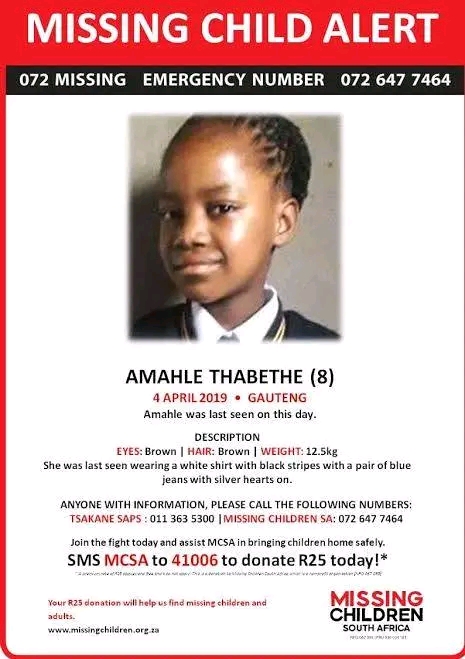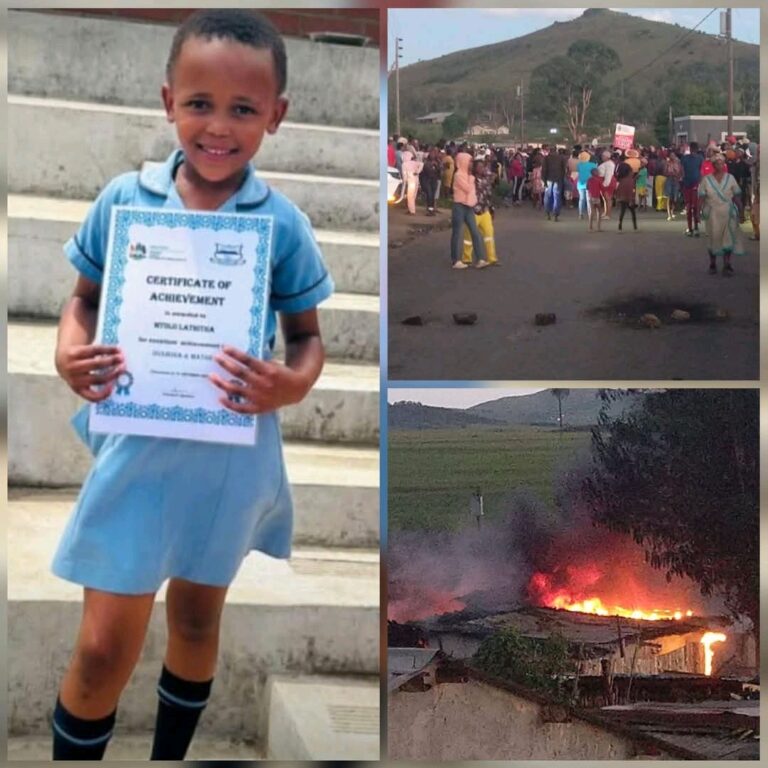
The heartbreak of missing children continues to haunt South African communities, and for the people of Tsakane, the pain is all too real. As national attention turns to the tragic case of Cwecwe, locals are reminded of another unresolved nightmare—that of Amahle Thabethe. The young girl went missing in 2019, and despite widespread searches and desperate pleas from her family, she has never been found.
Now, after six long years of anguish and uncertainty, Amahle’s case has been officially closed by the authorities. For her loved ones, this decision comes as a devastating blow. There are no answers, no closure, and, most painfully, no justice. The closure was reportedly communicated to the family via SMS, a move that left them feeling disrespected and deeply let down by the justice system.
Amahle’s mother, Nokulunga Nkosi, expressed her heartbreak at the authorities’ decision. Despite the official case closure, she still clings to hope that one day her daughter will return home safely. “I still believe she’s alive,” Nkosi shared. But her hope is tainted by profound disappointment in how the case has been handled.
What’s even more disturbing is the lack of support provided to the grieving family. According to Nkosi, they never received any psychological assistance from the Department of Health. Instead, she had to rely on her own limited resources to seek counseling and mental health support while enduring the trauma of losing a child.https://www.facebook.com/ntvnetwork/videos/1003190948688018/?mibextid=ClGUQ9kqrXgNGENK
Sunday, April 6th, marks six years since Amahle vanished—a painful anniversary that underscores the lack of progress in the case. For the Thabethe family, the passage of time has brought neither answers nor peace. The news of the case’s closure has reignited anger and frustration, not only among the family but within the broader community, where many are questioning why so many missing children’s cases remain unresolved and seemingly forgotten.
There is a growing sense that these tragedies are being swept aside by a justice system that lacks urgency and empathy. Community members and activists argue that Amahle’s case reflects a broader trend of neglect, where the disappearances of children—especially from marginalized communities—fail to receive the sustained attention and resources they desperately need.
As outrage builds, calls for systemic reform grow louder. Families like Amahle’s want more than sympathy—they want accountability, consistent support, and above all, justice. Amahle Thabethe may be gone from the headlines, but her story lives on as a painful reminder of the children who vanish and the families left behind, desperate for answers that never come.
Until justice is truly served, her case will remain a haunting symbol of a system that too often turns its back on the most vulnerable.




